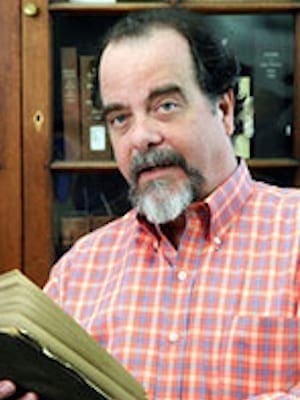I had the luxury of passing through Duala, Liberia, on a recent trip, but as a passenger instead of as the driver.
Usually I am at the wheel with 12 to 15 passengers on the way to an appointment in Monrovia, Liberia’s capital city, or by myself making a grocery run.
As a driver, I see a lot in Duala. As a passenger, I saw even more.
I saw what the writer of Ecclesiastes described: “Again I saw all the oppressions that are practiced under the sun. Look, the tears of the oppressed – with no one to comfort them! On the side of their oppressors there was power with no one to comfort them” (Ecclesiastes 4.1).
Duala is about halfway between Ricks Institute and Monrovia. Ricks Institute is a school from kindergarten to 12th grade, a learning and faith community of the Liberia Baptist Missionary and Educational Convention.
That puts Duala near the heart of Bushrod Island, which has a high population of struggling Liberians and a small population of economically stable – even comfortable – international business people.
Unemployment in Liberia is about 85 percent. What jobs are available usually are passed out in accord with a patronage system that has endured since the 1940s.
If you get a job and get some influence, you make sure that your family and friends are next in line for a job, no matter how small.
That leaves a growing population of poor, uneducated people crowded together in squalid “housing” – if you can call an abandoned shipping container or four walls of woven palm-frond with a plastic tarp roof housing.
Duala bustles every day; it is a picture of the economy at work.
International business people, mostly from the Middle East, own the traditional businesses, like supermarkets and hardware stores, which dot both sides of the road that cuts through Bushrod Island.
The indigent and eager gather day after day, and the lucky ones find something like a job as a porter or vendor.
There are wheelbarrows everywhere – thus, the porters. The contents of those barrows range from fresh produce and grains to various meats, palm oil and clothing.
The porters carry disposable goods to the vendors who sit under the sun, or, perhaps, under a large umbrella advertising beer or a cell phone company.
Where do these disposable goods come from? About 100 feet from the road there are “warehouses,” some nothing more than abandoned shipping containers, stacked full of items, such as 50 kilogram bags of rice (from China), tires, plastics, recycled clothing and knock-off sports shoes.
The international merchants buy in bulk and sell the items in smaller units.
For example, a 50 kilogram bag of rice is portioned out in bags of a few ounces or a wheelbarrow full of rice is delivered to a vendor who, in turn, measures out rice in a rusty can, according to her customer’s desire.
Duala is the kind of place one can buy one tablespoon of mayonnaise.
Here is the economy at work: The international merchants own the merchandise and the wheelbarrows. Porters and vendors are consignment workers who pay up front for what they hope to sell. With each transaction, the price goes up.
Everyone needs to turn a profit, no matter how small – except for the international merchants who always get their money up front.
And, yes, the international merchants collect rent on the wheelbarrows. Unless a porter pays the rental fee, no merchandise is available to move around Duala to the vendors.
What I see in Duala are the tears of the oppressed. The tears are not always literal, but the pained or blank expressions and the occasional angry outburst between porters and vendors are tears, literal or symbolic.
And what of the international merchants? They endure the scorn of Liberians who lack economic power.
“Lebanese” is a four-letter word in the mouth of many Liberians. They have economic power, but there is no one to comfort them.
Liberia is the only country in the world that refuses citizenship to all except those who can document a shred of African ancestry.
I understand that, given Liberia’s beginnings as a colony – and then a republic – for freed slaves.
My point is not about Liberian citizenship, but rather that the power of the oppressors excludes them from comfort in the same way that the oppressed are not comforted. This is the circumstance described in Ecclesiastes.
Both the oppressed and the oppressor yearn for liberation. That, for ill, is how the economy works.
 Richard Wilson is the Columbus Roberts professor of theology and chair of the Roberts department of Christianity in the college of liberal arts at Mercer University in Macon, Ga., and, for 2014, the president of the Liberia Baptist Theological Seminary. A version of this article first appeared on his blog, Revisiting Liberia, and is used with permission.
Richard Wilson is the Columbus Roberts professor of theology and chair of the Roberts department of Christianity in the college of liberal arts at Mercer University in Macon, Ga., and, for 2014, the president of the Liberia Baptist Theological Seminary. A version of this article first appeared on his blog, Revisiting Liberia, and is used with permission.

